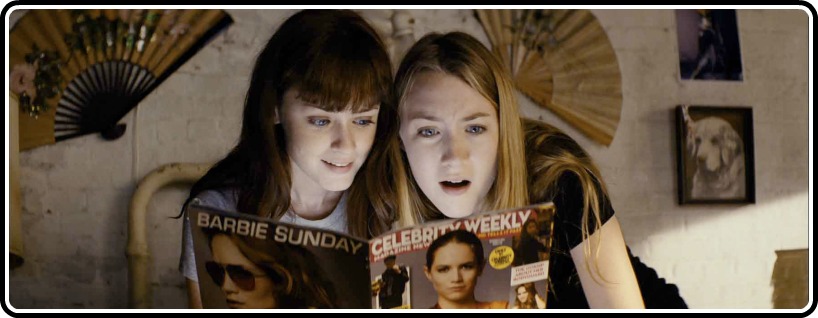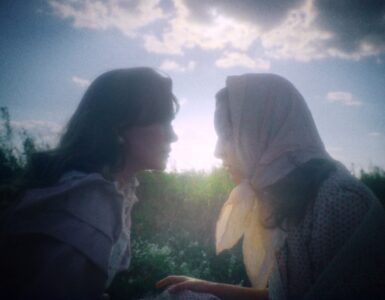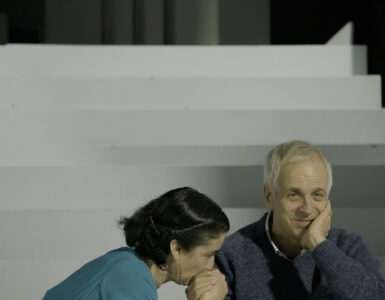Violet And Daisy arrives in theaters on Friday, and in honor of that film’s pending release, I had the pleasure to chat with its writer and director Geoffrey Fletcher. The film itself is best described as a brazen mixture of crime drama and coming of age tale, following two young killers as their lives are changed forever after meeting a supposed hit. The film is a well acted and directed meditation on various things ranging from idol worship to friendship, and if its anything, it is a sign that Fletcher is a name to keep an eye on.
– Could you talk a little bit about the film’s creation? I’ve heard you say before that the film has been in the works in some fashion since prior to Precious, but did working on that film change how you looked at Violet And Daisy?
I had the initial kernel for the film before writing Precious, but wasn’t able to work on it full time until after that film. The characters started speaking back to me very early on following that film. If Precious had any impact on Violet And Daisy, I would say that it inspired me to continue exploring the juxtaposition of certain images and emotions that you may not readily see together. For many years, I been so passionate about world cinema and classic American film that stylistically I was very inspired to explore but thematically, I’m intrigued by the clash between the innocence and harder qualities of this world.
– Violet And Daisy is an interesting film in many ways, primarily in how it deals with its mix of genres. The dialogue is heightened, and the blend of coming of age tale and deadpan crime film is something not yet seen from you. What was this writing process like? Is this type of blend something you actively strive for or are you drawn to it by your influences?
I’d say the latter. When coming up with the concept of a film, you certainly want to be focused and have concrete ideas and intentions, but I always want to listen to my own sensibilities. I try to listen to my impulses as much as my intellect.
– This is your first feature film directorial effort. As a director, what types of films inspire you? Did you watch any films following Precious to get back in the swing of things here? Again, there are so many genres involved within this picture:
I’m inspired heavily by all types of films. I actually have a list in my notes of films out of France, Japan and Italy in the 50s and 60s, American pictures from the 70s, and also American noir from the 40s. Particulars? Jules And Jim, Badlands, Breathless, Alphaville, Band Of Outsiders, Tokyo Drifter, Thin Red Line, Bicycle Thieves, Spirit Of The Beehive, Rififi, Stray Dog, Vivre Sa Vie, Third Man, Shadows and a multitude of others. And I’m continually inspired by watching films today.
– How did the cast get involved? Alexis Bledel and Saoirse Ronan have been churning in rather impressive performances throughout their careers, and really add great depth here. But the film really shifts when the character played by James Gandolfini shows up. How did they end up taking roles in the film?
Script made its way around very quickly and there were so many incredible talents who had an interest in the project I think that the three are remarkable actors who have even more sides to them I know we’ve seen a lot of their work but they do very different things here and are capable of doing even more things They’re all playing against type and remarkably so and I feel so fortunate to have them and the rest of the cast. Every one of these actors jumped into this very particular universe head first and delivered.
– Also the director on this film, how is working as the sole creative voice on a project different, for you, from working with a collaborator? Do you find the freedom thrilling or is a collaborator exciting as well? I ask this primarily because you’ll be heading back to collaborating with a director for your next project, Doug Liman’s Attica. Most people also may not know, but you have your MFA in Directing.
When I’m looking at adapting work, I try to keep the number of things in mind in terms of their requirements of cinema, in terms of pace, visual nature of the story. Studying directing was a huge benefit when writing for the cinema. Every adaptation is different. What’s best is putting a lot of yourself in the work while maintaining the spirit of the existing material. That may require you to remove things or create things or alter things. And I think all of that can work as long as you honor the spirit and themes of the source. An original script can be an adaptation of sorts, just adapting your sensibilities and world view into a new medium. Viewers of Violet and Daisy will be surprised about a lot of the larger themes found within it. Unusual things happen, there is a blend of genres, but the major themes (friendship, love, redemption, materialism, celebrity worship, forgiveness) all make their way through. I suspect people will be surprised by where it all goes and lands.
– Finally, I would be remiss if, as a writer for a site with a keen eye on The Criterion Collection, I didn’t ask, what are some of your favorite Criterion Collection releases?
Some of my favorites are The Bicycle Thieves, all of the Godard pictures, all of the Malick films, all of the Suzuki films, and particularly films like Spirit Of The Beehive, Shoot The Piano Player and Jules And Jim.






![Bergman Island (The Criterion Collection) [Blu-ray]](https://criterioncast.com/wp-content/uploads/2022/11/bergman-island-the-criterion-collection-blu-ray-400x496.jpg)
![This Is Not a Burial, It’s a Resurrection (The Criterion Collection) [Blu-ray]](https://criterioncast.com/wp-content/uploads/2022/11/this-is-not-a-burial-its-a-resurrection-the-criterion-collection-blu-ray-400x496.jpg)
![Lars von Trier's Europe Trilogy (The Criterion Collection) [The Element of Crime/Epidemic/Europa] [Blu-ray]](https://criterioncast.com/wp-content/uploads/2022/11/lars-von-triers-europe-trilogy-the-criterion-collection-the-element-of-400x496.jpg)
![Imitation of Life (The Criterion Collection) [Blu-ray]](https://criterioncast.com/wp-content/uploads/2022/11/imitation-of-life-the-criterion-collection-blu-ray-400x496.jpg)
![The Adventures of Baron Munchausen (The Criterion Collection) [4K UHD]](https://criterioncast.com/wp-content/uploads/2022/11/the-adventures-of-baron-munchausen-the-criterion-collection-4k-uhd-400x496.jpg)
![Cooley High [Criterion Collection] [Blu-ray] [1975]](https://criterioncast.com/wp-content/uploads/2022/11/cooley-high-criterion-collection-blu-ray-1975-400x496.jpg)